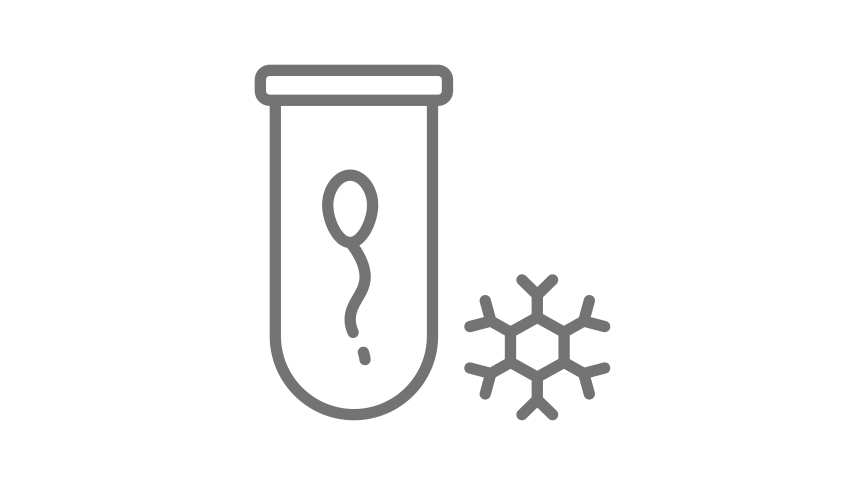What is Egg Freezing – All You Should Know

A lot has changed for people with uteruses thanks to advances in health tech. Things like birth control and modern abortions have given them options for if and when they want to have babies, and the ability to do it on their terms.
Modern technology has also given people more opportunities to focus on their career, adventuring, or just living their lives, while still ensuring the possibility of having a baby – when they’re ready. Fertility technologies like in vitro fertilization or IVF and IUI give people the opportunity to have biological children that might not otherwise be able to.
Another fertility technology that’s gotten more and more popular in recent years is egg freezing. Not only is it growing in popularity overall, but it’s becoming more common for younger people, not just those who are nearing their forties. So why the rise in egg freezing at a younger age? Is it necessary? Are there risks? What are the benefits? Dive in, and find out.
What is Egg Freezing?
Before you can examine the risks and benefits of freezing a woman’s eggs at a younger age, you need to understand the basic process. Egg freezing is the process of harvesting several healthy eggs and flash freezing them. These are then later fertilized using In vitro fertilization technology.
Frozen Eggs, is there a downside?
For the spirited adventurer or ambitious entrepreneur, egg freezing may seem like the perfect option to extend the life of your fertility, but it does come with some risks.
Egg freezing can be a difficult process, not to mention pricey. Average egg freezing costs are about USD $10,000, plus the cost of storage each subsequent year. Because this is the beginning stages of IVF, you use the same ovary stimulating drugs that people undergoing IVF use.
These medications can cause what’s called ‘ovarian hyperstimulation syndrome’. Mild cases can cause symptoms like bloating, nausea and vomiting, diarrhea, and ovarian tenderness. Severe cases can cause rapid weight gain, severe abdominal pain, shortness of breath, and a tight or enlarged abdomen. Although uncommon, this can cause severe complications like blood clots that typically form in the legs, twisting of an ovary, rupture of ovarian cysts, breathing problems, and can be potentially fatal, although that’s extremely rare.
The last, and hardest pill to swallow is that egg freezing doesn’t guarantee live birth, even when you do it at a younger age. That being said, you do have a higher chance of IVF working when you use younger, healthier eggs. In most places in the world, eggs can be stored for an indefinite period of time, but there isn’t data on how the length of storage may affect the health of the all the eggs.
Why People are Freezing Younger
The most obvious reason that people are freezing their eggs at a younger age is to give them options. They may want to see the world, achieve a certain level of success, or establish themselves before having kids. Other people may not have a partner, but want to have kids with another person, so they freeze their eggs until they find the right person. Single parenthood is also totally an option!
Another reason people may freeze their eggs at a younger age is if they have reproductive health or another health issue that may impact their fertility as they age. Things like ovarian cancer, endometriosis, and PCOS all can affect your future fertility.
Freezing your eggs at a younger age can also be a practical answer and is becoming easier to do. Technology is becoming more accessible and widespread, with fertility clinics popping up all over. Although it’s an expensive process, many companies are paying for their employees to get their eggs frozen or are offering stipends. This benefits the companies of course but is a great incentive for employees as well.
More data is coming out about the benefits of freezing eggs at a younger age. People who freeze their eggs before the age of thirty-five overall have to freeze less of them to have a chance of success. Meaning the younger you freeze, the higher chance you have of having a live birth, while having to use fewer eggs. That may mean fewer cycles of IVF down the line, which can be a draining and expensive process.
Should I Freeze My Eggs?
If you’re in your mid-twenties to early thirties, you might be wondering if egg freezing is right for you. The truth is that there’s no right answer. Only you can decide if this is the right decision for your life and your body. While freezing your eggs at a younger age can give you more options when it comes to your fertility, it does come with some risks and isn’t a sure thing.
If you have egg freezing on your mind, but aren’t sure if it’s the right move for you – you might want to seek outside advice and support (besides this article). A fertility specialist can give you logistical information and advice, as well as give you a more detailed explanation of your hormones, egg count, and what the future of your fertility may look like. Knowledge is power!
Another great person to seek out is a psychologist or therapist, especially one who specializes in fertility, family issues, or reproductive health. Mental health professionals can give you objective advice and help you weigh your options so that you can make the best decision for your life and your body.

Natasha (she/her) is a full-spectrum doula and health+wellness copywriter. Her work focuses on deconstructing the shame, stigma, and barriers people carry around birth, sex, health, and beyond, to help people navigate through their lives with more education and empowerment. You can connect with Natasha on IG @natasha.s.weiss.


